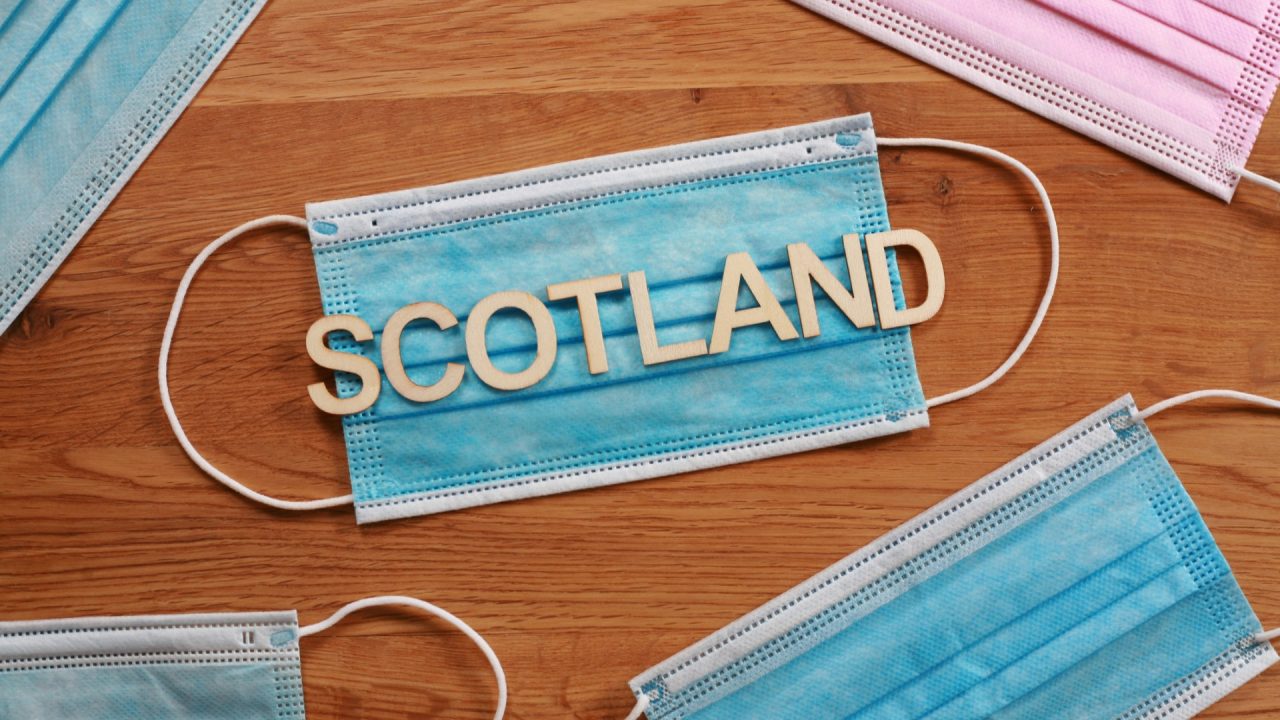First Minister Nicola Sturgeon provided an update on Covid-19 at the Scottish Parliament on Tuesday as the country seeks to move further towards a return to normality.
Almost two years on from the start of the pandemic, the steps being taken across the UK to restore a life more closely resembling that which was in place prior to March 2020 has been met by both jubilation and hesitation.
People have been split, with some expressing their excitement of getting back to living without any restrictions in place, whilst many others have been nervous about the potential for an increased risk brought by a virus still in circulation around the world.
But, what will be changing in Scotland? Here, STV News looks at some of the key details of the announcement made by the First Minister.
Face masks
A feature of all of our lives for close to two years, face coverings were introduced in a bid to reduce transmission of the virus and have been mandatory when entering shops and travelling on public transport.
They were later also required when society saw a return of large events, such as football matches.
It has been a legal requirement to wear one, but that requirement is expected to be dropped from March 21.
From that point on, it will instead become guidance, although people will still be strongly recommended to wear one in the relevant settings.
The legal requirement to wear face coverings has already been dropped in England, but it is worth noting that a number of shops still asked that customers continue to wear them.
Some public transport operators had also urged passengers to continue to wear a face mask, whilst they remained mandatory on Transport for London services.
So, it could be the case that we continue to see face masks being worn in Scotland for some time yet, but the announcement by the First Minister does however mark a significant move away from the mandatory nature of the measure.
Covid passports
From Monday, February 28, the Covid certification scheme will be dropped in Scotland.
The scheme became effective back in September in an effort to stem transmission of the virus, whilst allowing venues to remain open.
It required Scots over the age of 18 to show proof that they have been fully vaccinated against Covid-19 before being granted access to certain venues and events.
Nightclubs, unseated indoor events of more than 500 people, unseated outdoor events of more than 4000 people, sexual entertainment venues, and any event with more than 10,000 people in attendance, had to comply with the scheme.
During the festive period, concern over a rising number of cases of the Omicron variant resulted in a series of restrictive measures being re-imposed.
Despite the passport scheme having been in place, it meant that nightclubs were shuttered and large sporting events were effectively banned from having any spectators in place.
When it was announced that fans could once again return to stadiums, the scheme was revised so that organisers of large events would have to review the passes of a higher number in attendance – either 50% or 1000 people, whichever came first.
The scheme has already been dropped in England, and so Scotland will follow suit from next week.
But, businesses will be able to use the scheme if they wish to do so, as the app will remain operational.
Testing
People in Scotland are still being told to go for a PCR test if they have coronavirus symptoms.
Regular lateral flow tests should still be used, even if you do not have any symptoms of the virus.
However, the change being made in this area is around the frequency of testing.
The advice is now being updated from Monday, February 28, to test at least twice a week, and in particular, if you are going to a crowded place or mixing with someone who is clinically vulnerable.
This marks a change from the current advice which is to test before going anywhere to mix with others.
Lateral flow tests will also remain free of charge for the time being.
Self-isolation
Prime Minister Boris Johnson announced this week that from Thursday, people in England will no longer be legally required to self-isolate if they test positive for coronavirus.
But in Scotland, First Minister Nicola Sturgeon has continued to urge caution, with cases of the virus still in circulation.
So, if you’re living in Scotland, you should continue to self-isolate for the recommended period of seven days if you test positive for the virus.
Self-isolation support payments will remain available for those who are eligible.
Sturgeon explained that the recommended period of isolation will remain under review.
There have previously been calls for the isolation period to be shortened, but as yet, the advice is still to isolate when required to do so.
Follow STV News on WhatsApp
Scan the QR code on your mobile device for all the latest news from around the country


 iStock
iStock
























